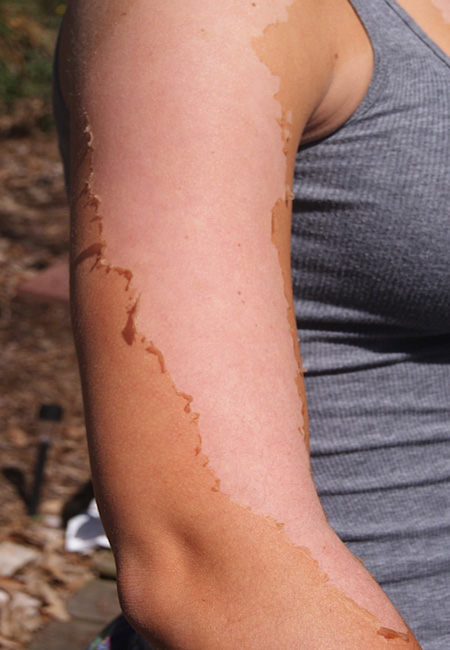With spring break over and summer just around the corner, teenagers have begun to expose their skin to doses of Vitamin D in hopes of receiving that highly-demanded bronze complexion. For the many teenagers that want that quick darkened color, tanning facilities are seen as a more accessible option.
It seems though, that despite rising cases of skin cancer in the U.S., the government and tanning facilities alike have not strengthened the regulations on the ability for teenagers to receive the exposure to these ultraviolet radiation, or UV rays.
Despite current indoor tanning bed regulations, the lack of enforcement of these regulaitons allows teens to access the beds and become more susceptible to various types of skin cancer.
Recently in Newark, New Jersey, Patricia Krenctil gained negative media attention when she was accused of taking her 12-year-old daughter into a tanning salon. After hearing of this unfathomable action, Governor Chris Christie signed a law stating that nobody under the age of 14 could be found in a tanning salon and nobody under 17 could attend a tanning salon without an adult.
But why has it taken so long to increase these regulations? According to the Skin Cancer Foundation, between the years of 1992 and 2006, the number of skin cancer cases have increased by a remarkable 77 percent and this type of cancer alone is predicted to account for 76,600 cases of cancer that will be diagnosed in 2013.
With the effects of obesity already becoming an epidemic in our maturing generation, the thought of adding skin cancer as another issue is not as far-fetched as it may have appeared a decade ago. Parents and teenagers seem to understand the possible repercussions of exposing their fair skin to UV rays, but many are oblivious to how likely their chances are of actually becoming victims of this disease.
Currently, Virginia’s regulations on indoor tanning are that anyone can use the UV ray beds with parental permission, which seems reasonable, but according to the National Conference of State Legislatures, or NCSL, Virginia is only one of ten that require parental permission while 17 states have no known indoor tanning bed restrictions.
The idea of enforcing a nationwide indoor tanning law is not as far-fetched as it may appear. Currently, Virginia has proposed legislation prohibiting children under the age of 14 to enter tanning salons, while still enforcing parental permission for those under the age of 18. With Virginia being one of 29 states to make an effort to further restrict tanning bed regulations, it seems as though state legislatures have begun to realize the risks associated with this popular activity.
For those that tan on a frequent basis, the idea of not being able to attend these facilities whenever they please is heartbreaking, but the government needs to do all it can to prevent increased numbers of skin cancer in teenagers all over the U.S.
Although the government fears that increased tanning restrictions will hurt businesses and the economy, they need to take into consideration the already existing regulations on tobacco sales. The current age for legal tobacco purchases is 18 and cigarette business have had no problem making a profit. The purpose of such age limits on tobacco purchases are applied for no reason but to hopefully prevent lung cancer for teenagers. Shouldn’t the same restriction apply for tanning due to its risks regarding skin cancer?
In summary, there is no reason that the government should not have nationwide law stating that an individual must be 18 or older to attend a tanning facility under all circumstances. If our country is going to make improvements towards the overwhelming statistics regarding skin cancer in relation to indoor tanning, we need increased regulations in order to prevent a future generation of ‘Snooki’-colored individuals.







